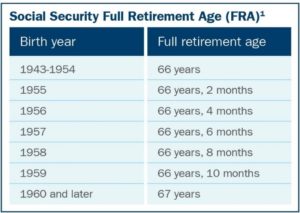So, you are thinking about changing your name. We can help!
Remember, your legal name is used on all official documents. You are given a name, usually by your parents, and it is memorialized on your birth certificate.
Today, as part of the process, a Social Security card is issued at birth. This also includes your official name as set forth on your birth certificate.
Other official documents include your marriage or professional license and your official New York State ID, such as a driver’s license. It is also used on other official United States documents besides your Social Security Guard, such as your passport, and federal employee ID if applicable.
In the State of New York, you have the right to change your legal name under certain circumstances and if certain requirements are met. As you might have guessed, there is a legal procedure that must be followed in order change your name.
How do you change your name in the State of New York?
The first way is through marriage. Either you or your spouse legally change his or her name when procuring a marriage license. The new name that is chosen is put on the marriage license application and becomes your legal name when you are married.
The second way is through divorce. The Court can enable either spouse to assume any name used before the marriage when the Judge signs off on the Judgment of Divorce. The Judgment of Divorce in New York allows either party to return to a previous family name or surname.
The final way is by obtaining a Court Order which allows you to assume a new name. An individual has the ability to ask the New York State Supreme Court or other Court of appropriate jurisdiction for an Order which legally changes your name to any name you choose. To accomplish that, you must pay the requisite fee and complete and file certain documents with the Court, including:
- An Index Number Application
- A certified or original copy of your birth certificate
- A Name Change Petition
- A Name Change Order
- A Request for Judicial Intervention (RJI)
If you have a criminal conviction, have judgments filed against you, have failed to pay child support, or have filed for bankruptcy, additional documentation will need to be filed and reviewed by the Court before the name change is granted. There is a requirement that once the Order is signed, it must be published in a local newspaper as directed by the Court. Once the directives of the Order are complied with; the name change becomes official.
Getting a court order or changing your name on a marriage license is only part of the process!
When the Order becomes final, get court certified copies of the order or marriage license and send them to the Social Security Administration, the passport office, the Department of Motor Vehicles, and any other agencies that maintain your records, along with any other documents they require. You might also wish to contact the credit reporting agencies.
Only then, will you truly have a legal name of record. Many people forget to provide the court order or marriage license to the appropriate agencies. This only causes confusion and could wreak havoc in your life.
The Law Offices of Joseph A. Marra, PLLC can assist you with preparing and filing your Petition with the Supreme Court of the State of New York and for a legal name change.
If we are retained to assist you, we will expeditiously complete and file all the necessary paperwork to obtain your new name.
Contact us today!

